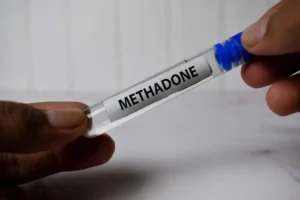
In contrast, a limited number of studies have reported deleterious effects of alcohol on β-cells, in which alcohol inhibited the insulin secretion [25]. As a result of β-cell dysfunction and inadequate insulin release, postprandial and subsequently fasting glucose levels can diabetics get drunk increased, due to incomplete suppression of hepatic glucose production and decreased efficiency of liver and muscle glucose uptake. Successful long-term control of hyperglycemia decreases diabetes complications (6) and is therefore a major goal in diabetes management.
- Many people with alcohol use disorder hesitate to get treatment because they don’t recognize that they have a problem.
- The most important thing to know is that alcohol consumption can cause a significant blood sugar drop (hypoglycemia).
- Many impotent diabetic men also have lower than normal levels of the sex hormone testosterone in their blood.
Statistical analysis

In addition to the direct effects on diabetes, negative interactions between alcohol and diabetes medications have been documented. For instance, the likelihood that alcohol will https://ecosoberhouse.com/article/why-do-alcoholics-crave-sugar-in-recovery/ induce hypoglycemia is greater in the presence of sulphonylureas [14]. Also, chlorpropamide has been shown to reduce the rate of ethanol elimination from the blood [26].

Intervention
However, some typical contributing factors result in insulin lack and excess glucagon levels, thereby promoting the development of ketoacidosis. As mentioned earlier in this article, poor food intake can lead to depleted glycogen levels. Furthermore, continued alcohol metabolism results in diminished gluconeogenesis. Both the depletion of glycogen and diminished gluconeogenesis lead to lower blood sugar levels.
Alcohol and Basal Glucose Homeostasis
- Individual changes in FPG and 2-h postmeal glucose after 12 weeks of moderate alcohol intervention among patients with type 2 diabetes.
- If you’re living with diabetes, talk to your doctor about how alcohol may impact your condition management plan, even if you only have an occasional alcoholic beverage.
- Alcohol is a depressant that impacts how your brain communicates with your body.
- Sex-specific self-reported alcohol consumption was selected as the exposure of interest.
- If you’re concerned about someone who drinks too much, ask a professional experienced in alcohol treatment for advice on how to approach that person.
Differences among studies, such as whether alcohol is administered with or without a meal and whether a fasting glucose level is measured make comparisons across studies difficult [7] and may partially explain inconsistencies. Both glycemic control and glucose production have been shown to be affected by alcohol [5;12]. Diabetic control may be negatively impacted by even small amounts of alcohol [6]. However, no acute effect of small doses of alcohol on plasma glucose or serum insulin has been documented in at least one study [15]. In addition, one study [16] found an inverse relationship between alcohol consumption and HbA1c, a measure of past three-month glycemic control.

Tips for Drinking Safely With Diabetes
- In contrast to the ability of insulin to increase glucose uptake in striated muscle and fat (see following sections), insulin normally inhibits hepatic glucose production (HGP).
- This meta-analysis benefited from the addition of 18 studies published since 2008 or otherwise missed or discounted during previous meta-analyses.
- Therefore, understanding of the pathophysiological bases of these mechanisms should enhance better approaches to a potent therapeutic strategy for the treatment of both alcoholism and diabetes.
- Among other cell types, the Islets of Langerhans include an inner core of insulin-producing beta cells surrounded by a layer of glucagon-producing alpha cells.
- The likely explanations for this observation are related to the alcohol dose or duration or to unique characteristics of the study population.
- Even under basal postabsorptive conditions, glucose disposal in skeletal muscle (as well as in heart and adipose tissue) occurs by two mechanisms—insulin-mediated glucose uptake (IMGU) and noninsulin-mediated glucose uptake (NIMGU).
- When you drink alcohol, your liver has to work to remove it from your blood instead of working to regulate blood sugar, or blood glucose.